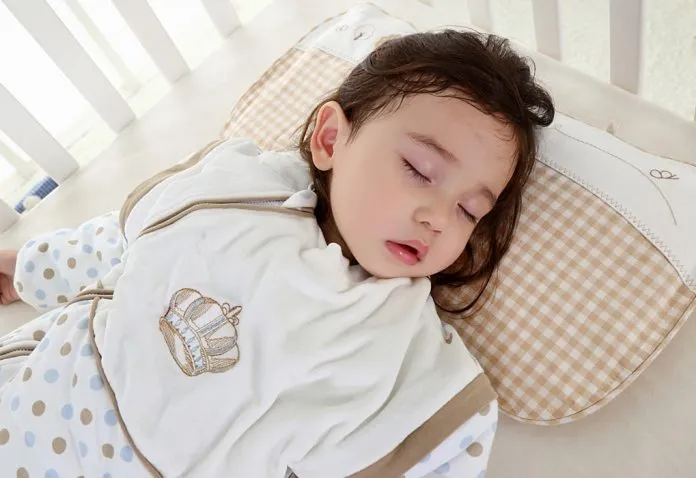When Do Premature Babies Grow Out of Apnea

- What is Apnea of Prematurity?
- What Causes Apnea of Prematurity?
- Symptoms of Apnea of Prematurity
- Diagnosis of Apnea of Prematurity
- How is Apnea of Prematurity Treated?
- What if Your Baby is on a Home Apnea Monitor
- Tips to Help Your Baby
Last Updated on
Every parent wishes for a healthy and safe pregnancy, but unfortunately, there can sometimes be complications that prevent that from happening. When a child is premature, there are a lot of hurdles that parents need to be ready to face because your child has not been able to spend the required amount of time in the womb and so will not have fully developed. Apnea of prematurity is something that many premature babies face, and here we have put together information that will be helpful for you.
What is Apnea of Prematurity?
Babies must breathe continuously after they are born, but premature babies have not had enough time for their central nervous systems to mature enough and so non-stop breathing is not possible for them. When a preterm baby pauses in their breathing for more than fifteen to twenty seconds or pauses for less time than that but has low oxygen levels or a slow heart rate, he or she has Apnea of Prematurity. This usually resolves itself in a few weeks, and once it goes away, it most often does not reoccur.
What Causes Apnea of Prematurity?
While the main cause of Apnea Of Prematurity may be caused due to the central nervous system not being matured, other causes are also likely to result in breathing problems. Central Apnea is caused due to interference in the breathing control centre of the brain, and Obstructive Apnea occurs as a result of the airway being blocked. Apnea of Prematurity can also be caused when there are problems with other organs.
Here we discuss the various reasons Apnea of Prematurity may be caused
- Respiratory diseases
- Infections
- Tissue damage or bleeding in the brain
- Glucose, calcium or other chemical levels are either too high or too low in the body
- Reflux, a gastrointestinal problem where the contents in the stomach move up and back into the oesophagus
- Blood vessel or heart problems
- Feeding tubes, suctioning or when a baby's neck is flexed too much can cause certain reflexes that trigger apnea
- A neurologic system that is not yet mature
- Unstable temperatures
Symptoms of Apnea of Prematurity
While every individual child may go through the symptoms differently, some of the general symptoms are as follows
- Breathing problems may begin either in the first week of birth or a little later.
- There will be periods where your baby does not breathe for around twenty seconds, sometimes more.
- Your baby may develop bluish colouring from a lack of oxygen.
- Bradycardia, where there is a severe drop in the heart rate of your child.
Diagnosis of Apnea of Prematurity
First, you will need to know what is causing your child to have breathing problems. There is another breathing problem that can occur in babies, both premature and full-term, called periodic breathing. This has a pattern of short pauses in breathing that is then followed by a burst of faster breathing. While periodic breathing is considered a normal type of breathing that occurs in babies, apnea of prematurity is a more serious issue that will require medical intervention.
Your doctor is going to have to check many of your baby's body systems in order to identify what the problem is and what is causing the apnea to occur. Some of the diagnostic procedures may include the following:
- A physical examination of your baby
- In order to find out what your baby's blood count and levels of electrolytes are, a blood test will be done. This will also reveal to the doctor if there is any existing infection.
- Your doctor will take a nose swab of your baby to check for other types of infections
- Your baby's oxygen levels in the blood will be measured
- In order to check for any problems in your baby's lungs, gastrointestinal system or heart, your doctor will need to X-Ray your baby
- An Apnea study will also be done on your baby in order to monitor his or her breathing, heart rate and levels of oxygen.

How is Apnea of Prematurity Treated?
The treatment of Apnea of Prematurity will be determined based on different factors such as your baby's gestational age, medical history, overall health, the extent of the condition and his or her tolerance towards certain types of medications, therapies and procedures. The following is how most infants with Apnea of Prematurity are treated
- Preterm babies are sent to the Neonatal Intensive Care Unit (NICU) of the hospital where they will be able to get the proper medical care needed as their lungs are often too immature to support breathing on their own.
- Apnea usually occurs once a day, but it is possible for it to occur more than that, so the medical staff will need to be alert to all the symptoms, and the doctor will also need to determine if the apnea is caused by an infection.
- Oral or IV (Intravenous) medication will be given to the child in order to stimulate him/her into breathing. Low doses of caffeine will aid in ensuring that they are alert and breathing normally.
- Babies are put on Cardiorespiratory monitors, also known as A/B Monitors (Apnea and Bradycardia) so that their heart rate can be monitored. If your baby stops breathing for a set number of seconds, an alarm will go off and a nurse will rush in to check on your baby.
- Most babies begin to breathe after being stimulated by rubbing the back, arms and legs, but for those who don't and who begin to turn pale or start to show a blue tinge in their skin, a handheld oxygen mask would need to be used. Most often, only a few pumps are needed in order to stimulate the child into breathing again.
- Some babies may require continuous airway pressure and are put on machines that help them breathe by pushing a non-stop flow of oxygen into their airways to keep their tiny air passages open in the lungs.
What if Your Baby is on a Home Apnea Monitor
Almost all cases of Apnea stop by the time a premature baby is ready to be discharged, however, some will continue to get some apnea spells. For these, your doctor will decide whether the case requires you to take a home apnea monitor.
The home apnea monitor will have two main parts. One will be a belt that has sensory wires, and that is to be placed around your baby's chest. This will monitor your baby's chest movements and breathing rate. The other will be a monitoring unit that will have an alarm. This unit will keep a continuous record of the rates delivered by the sensors.
Before discharging your baby, the medical team at the NICU will go over the functioning of the unit with you and will instruct you on how it is to be used. They will also teach you how to respond to an alarm and will train you on how to perform CPR, though there may not be an actual need for it. Ask your doctor all your doubts and bring forward any concerns that you may have so that you have a clear mind and will be able to manage the situation well at home.
If your baby has an apnea spell at home, you will need to follow the instructions of the staff and rub your baby's back, arms or legs in order to help stimulate them to breathe again. If nothing is working and you notice that your baby's skin is beginning to turn blue, you must immediately start CRP and call the emergency number.
Please remember that no matter how dire you feel your situation is, you must never shake your baby to wake him/her up!
Tips to Help Your Baby
Apnea in premature infants will usually go away on its own and most healthy babies who do not have a spell in a week will be fully recovered from the condition. Here are some tips that you may find useful while handling your little darling:
- As your baby will be very delicate while in the NICU, ask the staff what is all right for you to do in terms of bonding with your child. The case will be different based on each individual baby's condition. Some may only be allowed to speak softly to their babies for a period of time, before being allowed to caress and slowly hold and feed your baby.
- Always place your baby on his/her back while sleeping
- Baby's neck should be kept either neutral or slightly extended so that the airways do not get obstructed
- Ask your doctor to perform a car seat challenge test as sleep apnea in preemies puts them at risk of oxygen desaturation while in a car seat.
It can be a very stressful time for you when your baby is in such a delicate position in their lives and watching them struggle to breathe can be so heartbreaking, especially when most of us do not even think about it as it is so easy for us. So if you feel discouraged at any point, talk to the staff at the NICU as they are not only trained to look after your little ones, but to also reassure and support the parents as well. It is completely normal for a baby who is born before the proper period of gestation is over to have a bit of trouble as they are still underdeveloped. Take heart and know that your baby will soon grow stronger and be able to function and grow and do things normally just like every other child can.
Also Read:Sleep Apnea in Infants
When Do Premature Babies Grow Out of Apnea
Source: https://parenting.firstcry.com/articles/apnea-of-prematurity-causes-symptoms-treatment/
0 Response to "When Do Premature Babies Grow Out of Apnea"
Post a Comment